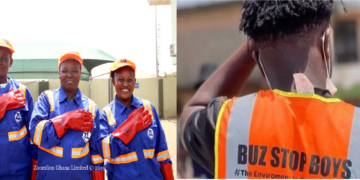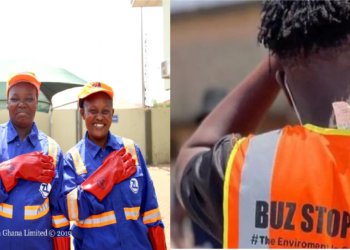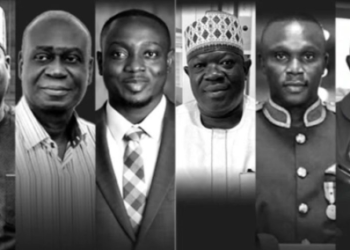
The Minister of Sanitation, Cecilia Abena Dapaah says Accra is 85% clean.
According to her, the government achieved 100% of its target of making Accra the cleanest city in Africa during the lockdown.
But added it reduced to 85% due to human activities.
She made the claim when she embarked on a sanitation and clean up tour of parts of Nima and Mamobi, two communities in Accra.
“I will give it (cleanest city agenda) 85% because, at the end of the day, you all saw the 100% we gained during the lockdown. So who makes Accra dirty? That’s why we are sensitising people every day,” she told the media Tuesday.
President Nana Akufo-Addo in April 2017 promised to make Accra the cleanest city in Africa by the end of his tenure in office.
The ambitious promise came in the face of worsening sanitation crisis in the nation’s capital, Accra, with city authorities struggling to deal with the situation.
The city’s drains are persistently clogged, while garbage continues to pile up at busy commercial places, including the Nkrumah Circle and the Central Business while markets
A section of the public including some experts cast doubt on the agenda, saying it was impossible to achieve it by the end of 2020.
In April 2019, the Sanitation minister made a U-turn on the deadline for achieving the cleanest city agenda.

She extended the deadline from the president’s 2020 to 2024.
Madam Dapaah who spoke during a media encounter in April 2019 said “In sha Allah, the president would go for two terms and at the end, Accra would have been the cleanest and the battle is still the Lord’s”.
She explained that the agenda remained one of President Akufo-Addo’s priorities.
“His Excellency the president is so serious with this call to all of us, to make Accra the cleanest and Ghana a clean country. He has put the Ministry of Sanitation and Natural Resource on the top priority list of government to be able to access the budget that we need,” she said when she took her turn at the Meet the Press Series in Accra.
Data from the Accra Metropolitan Assembly indicates that on the average the city generates more than 3,000 tonnes of waste, but about 2,700 tonnes is collected.
With less than a quarter of the city’s waste recycled, there is pressure on the various metropolitan and municipal authorities to find a lasting solution to a problem that was on the 2016 campaign trail.
















